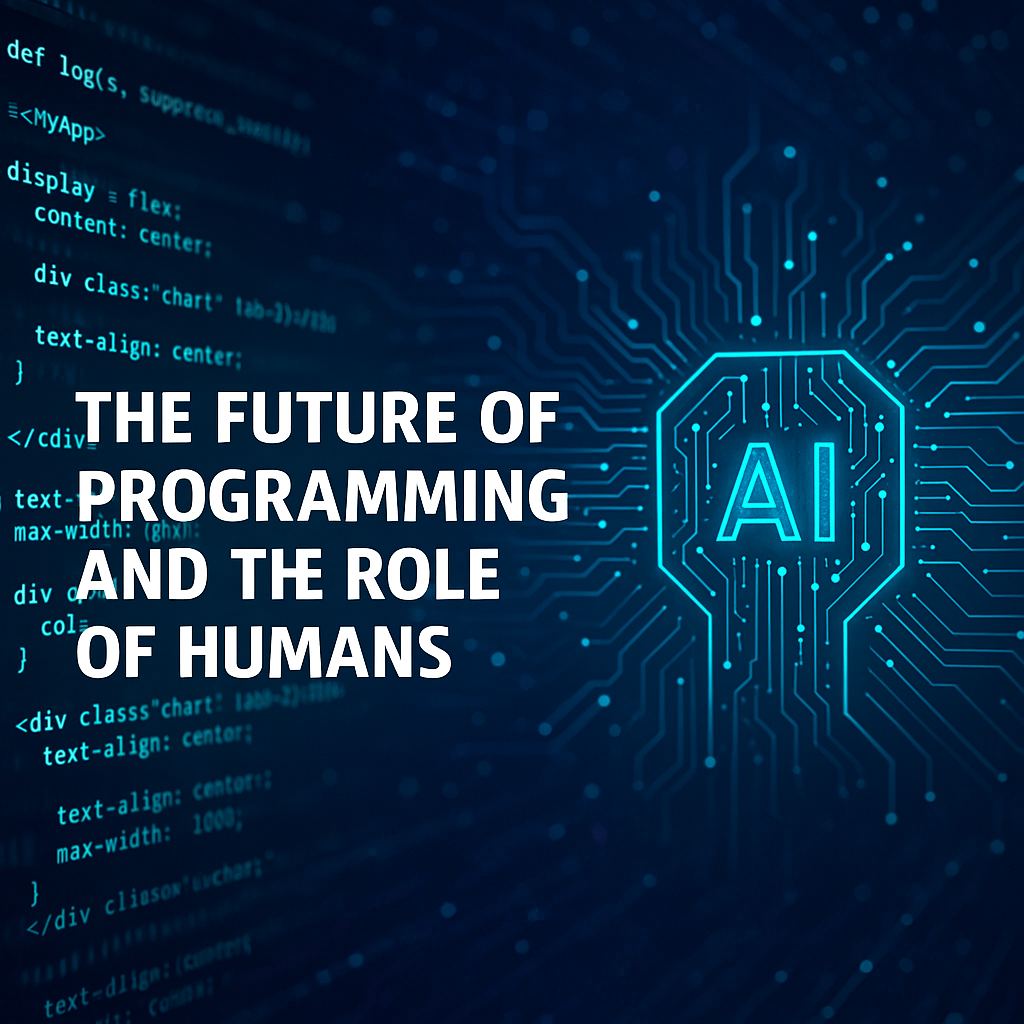The Future of Programming and the Role of Humans

From Code to Intentions
Over the decades, programming has shifted from assembly to high-level languages, from scripts to frameworks, from IDEs to GitHub Copilot.
Today we are entering a new era: humans stop “writing code” and start “expressing intentions.”
Already, it is possible to describe a system in natural language and have an AI produce a working website or even a mobile app prototype.
What Remains Difficult
But the essence of programming was never in typing code.
The true challenges are:
- Precise problem specification – clarifying what exactly we want to build.
- Verification – ensuring the system behaves as intended.
- Evolution – changing the system safely as requirements grow.
AI can accelerate all these, but meaning and responsibility remain on the human side.
The New Process
- Formulate ideas and intentions – humans describe outcomes, user stories, rules.
- Generation and validation – AI creates implementation, tests, and documentation.
- Iterative refinement – humans adjust requirements, add constraints and edge cases.
- Evolution – systems are continuously updated, with AI rewriting modules while humans define direction.
The Transformed Role of Programmers
Programmers will not disappear; they will transform into:
- Architects of Intentions – framing business goals and constraints.
- Curators of Quality – maintaining structure, security, and correctness.
- Integrators – connecting AI agents, services, and processes.
- Ethical Filters – deciding what should or should not be automated.
Humans at the Core
AI makes coding accessible to everyone, much like spreadsheets once did.
But the real value of humans lies in setting direction, inventing meaning, and asking the right questions.
Programming will become part of general literacy, yet deep responsibility for outcomes will remain human.
Conclusion
The future of programming is not the end of the profession but its transformation into the art of formulating intentions and guiding complex systems together with AI.
Humans will not need to memorize frameworks or syntax, but they will need to think systemically, validate results, and steer progress responsibly.